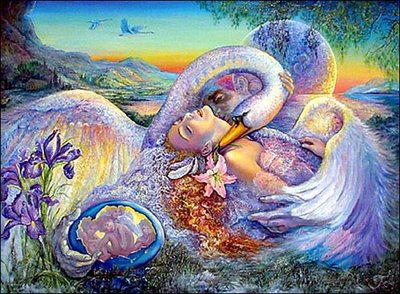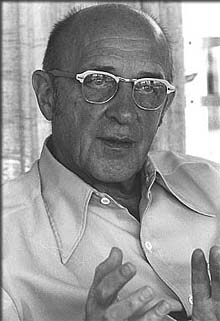
For centuries, the need for scientific psychology has been expressed as a need for help as well as a form of intellectual curiosity. While philosophers speculated on human nature and researchers examined human sensory processes, educators and physicians struggled to find new answers to problems of helping people to learn and adjust. Much of modern psychology has been influenced by these early efforts to help others.
Psychoanalysis
The Viennese physician Sigmund Freud(1856-1939) developed an early interest in neurology into a system of treatment for psychological disorders. His system of therapy was known as psychoanalysis because it emphasized the importance of analysing the "psyche" in order to gain insight into psychological conflicts. Psychoanalysis has also come to be known as a "theory" of personality and a perspective on human nature.
Psychoanalysis, a form of mentalism like structuralism and functionalism, assumes that psychological experiences are caused by biological drives and instincts. Living in civilized society inevitabley frustrates many biological drives, bit most of the resultant conflict is kept hidden from one's conscious mind. Conflicts and anxiety in one's unconscious can sometimes manifest themeselves in disguised forms, safely in dreams, or more dangerously in physical symptoms. Such symptoms can be crippling unless the sufferer, through psychoanalytic therapy, achieves insight into the original conflict, and the symptoms become unnecessary.
Although the principles of psychoanalysis have captured the public imagination, they defy empirical testing. Scientific theories are formed, tested, modified, and sometimes rejected on the basis of empirical(experience-based) observations. Yet psychoanalytic concepts like that of the unconscious mind cannot be tested, confirmed or rejected through observation. Thus psychoanalysis cannot accurately be called a "theory". Nonetheless the concepts of psychoanalysis are well known worldwide, and the application of psychology in the treatment of mental and physical illness has been shaped by many psychoanalytic ideas.
Humanistic Psychology
Psychoanalysis assumes that human behaviour is naturally selfish and uncivilized, and that people must be guided and coerced into being productive and helpful.
Humanistic psychology begins with a very different assumption. Humanistic psychologistsassume that people are essentially motivated to be productive and healthy, and only need guidance when circumstances have impeded their natural progress.
Abraham Maslow(190
 8-1970) explained that while much of human behaviour is devoted to gratifying needs, there are many different levels of human needs. Human motivation can be ranked in a hierarchy of needs. In this hierarchy, needs for physiological survival are most basic, followed by needs for safety and belongingness. Beyond these are "higher" needs for esteem, and highest of all, for self-actualization. Self-actualization is a process of becoming all one can be, of realizing one's individual human potential. Although Maslow asserted that self-actualization is the least basic of the needs in the hierarchy, his placement of such a motivation as a "need" distinguishes his perspective as humanistic.
8-1970) explained that while much of human behaviour is devoted to gratifying needs, there are many different levels of human needs. Human motivation can be ranked in a hierarchy of needs. In this hierarchy, needs for physiological survival are most basic, followed by needs for safety and belongingness. Beyond these are "higher" needs for esteem, and highest of all, for self-actualization. Self-actualization is a process of becoming all one can be, of realizing one's individual human potential. Although Maslow asserted that self-actualization is the least basic of the needs in the hierarchy, his placement of such a motivation as a "need" distinguishes his perspective as humanistic.Carl Rogers (19
 02-1097) was one of the founders of the humanistic psychology movement and the most influential psychologist in American history. He wrote 16 books and more than two hundred articles and received many honors, including the Distinguished Scientific Contribution Award of the American Psychological Association. He developed a client-centered or person-centered approach to therapy based on a humanistic theory of personality. In Rogers' system, the client who seeks therapy is the "expert" on his or her own needs, goals, and how to meet them. This contrasts sharply with psychoanalysis, in which a patient seeks the expert assistance of an analyst. Rogers emphasizes the power of providing acceptance and feedback to the client in helping the client to discover his or her own best strategy for growth and adjustment.
02-1097) was one of the founders of the humanistic psychology movement and the most influential psychologist in American history. He wrote 16 books and more than two hundred articles and received many honors, including the Distinguished Scientific Contribution Award of the American Psychological Association. He developed a client-centered or person-centered approach to therapy based on a humanistic theory of personality. In Rogers' system, the client who seeks therapy is the "expert" on his or her own needs, goals, and how to meet them. This contrasts sharply with psychoanalysis, in which a patient seeks the expert assistance of an analyst. Rogers emphasizes the power of providing acceptance and feedback to the client in helping the client to discover his or her own best strategy for growth and adjustment.
Master:
ReplyDeleteVery good website, thank you.
Jyotisharnnaba